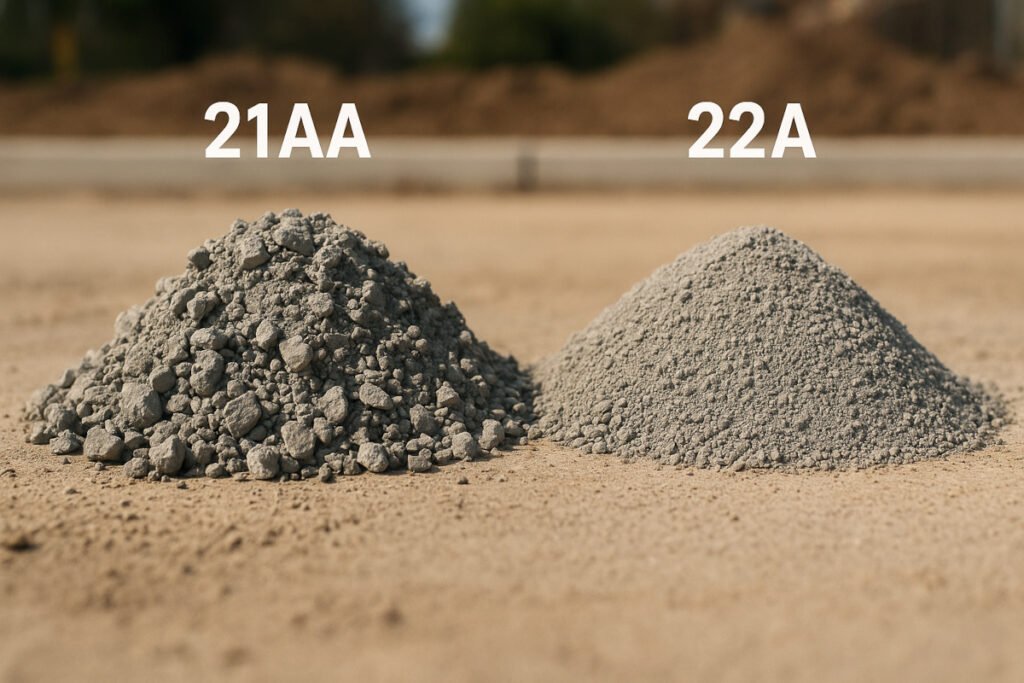When building or improving a house, most people focus on the kitchen, roof, or landscaping — but one of the most critical parts of your home’s functionality and value is the driveway. It’s your property’s first impression, its main point of access, and a major contributor to curb appeal and usability.
As professionals, we can tell you from experience:
“Driveways represent at least 50% of our project requests — and it makes sense: once your house is ready, the next most important thing is access. We always like to recommend driveway work we know our clients will love, and above all, will last. We also know how to work with tight budgets.”
Whether you’re planning a driveway for a newly built home or upgrading an existing one, this guide will walk you through the best materials, design tips, installation practices, maintenance, and budgeting strategies — all based on real-world projects.
🏡 Why Your Driveway Is a Key Part of Your House
Think of your driveway as the bridge between your private life and the world outside. It’s not just a place to park — it’s the first thing you and your guests experience when arriving home. A well-designed driveway:
- Improves curb appeal
- Adds property value
- Increases safety and accessibility
- Prevents erosion and drainage issues
- Reflects the personality and quality of the home
📋 5 Key Factors Before You Start a Driveway House Project
Before choosing a material or design, assess these factors:
1. Traffic Load
- Are you parking small vehicles, large trucks, RVs, or trailers?
- Daily use vs. occasional use
2. Topography & Drainage
- Is the site flat, sloped, or uneven?
- How does water flow during heavy rain?
3. Climate Conditions
- Freeze-thaw cycles? Heavy rains? Drought?
- Will the surface need to handle snowplows or high heat?
4. Aesthetic Integration
- Should it match your home’s color and architectural style?
- Will landscaping or lighting be involved?
5. Budget Range
- Do you need a cost-effective solution or are you ready to invest in premium finishes?
Remember, a well-planned driveway saves you money in the long run by reducing repairs and improving durability.
To make planning even easier, try our Concrete Calculator — a simple tool that helps you estimate exactly how much material you’ll need for your driveway project.
🧱 Popular Driveway Materials for Residential Homes
Let’s explore the most commonly used materials in house driveways, including their pros and cons:
🔹 Concrete Driveways
- Durability: Long lifespan, low maintenance
- Style: Can be colored, stamped, or brushed for texture
- Best for: Homeowners looking for a clean, modern finish
🔹 Asphalt Driveways
- Cost-effective: Great for long driveways
- Easy repairs: Can be resealed or patched
- Best for: Cold climates or large properties
🔹 Gravel or Crushed Stone
- Affordable: Lowest initial cost
- Good drainage
- Best for: Rural homes, temporary solutions, or tight budgets
🔹 Paver Stones
- High-end aesthetics: Elegant, custom patterns
- Long-lasting: Individual units can be replaced
- Best for: Luxury homes or detailed landscaping projects
🔹 Recycled Concrete (like 21AA or 22A)
- Eco-friendly & durable
- Great compaction and load-bearing properties
- Ideal for: Driveways with heavy vehicles or cost-conscious clients
✅ Choosing the Right Material for Your Driveway
Not every material fits every home. Here are some real-world pairings that work:
| Home Type / Location | Best Driveway Type | Why |
|---|---|---|
| Suburban residential | Concrete or pavers | Durable and stylish |
| Rural homes / farms | Gravel or recycled concrete | Affordable and practical |
| Luxury homes | Pavers or decorative concrete | High-end look |
| Budget-conscious homeowners | Asphalt or crushed concrete | Good performance, lower cost |
| Sloped terrain | Concrete with proper grading | Prevents erosion and washouts |
Again, as we often advise:
“We always like to recommend driveway work we know our clients will love, and above all, will last.”
✨ Design Ideas to Enhance Your Driveway
While function is key, aesthetics make the driveway stand out. Consider:
- Borders: Brick or stone edging
- Islands: Green strips with plants or trees
- Lighting: LED path lights, solar driveway lights
- Patterns: Stamped concrete for driveway, paver layouts
- Integration: Matching walkways, garage door trims, or garden beds
Tip: Try combining two materials (e.g., concrete + gravel) to balance looks and cost.
🏗️ Installation Tips for Long-Lasting Results
Proper installation is what makes a good material great. Best practices include:
- Excavation & base preparation: Minimum 6–12 inches of compacted base
- Drainage: Always slope away from the house
- Edge protection: To prevent crumbling or spreading
- Reinforcement: Use mesh or rebar in concrete for added strength
- Curing time: Let concrete cure at least 7 days before full use
🛠️ Maintenance Tips to Keep It Looking New
No driveway is 100% maintenance-free, but some care goes a long way:
| Material | Maintenance |
|---|---|
| Concrete | Seal every 3–5 years, clean with power washer |
| Asphalt | Seal yearly, patch cracks quickly |
| Gravel | Refill displaced areas, level regularly |
| Pavers | Remove weeds, replace individual stones if needed |
| Recycled Concrete | Compact if settling, refill low spots |
💰 Driveway Cost Breakdown: Plan With Confidence
Here’s a rough idea of what homeowners can expect to invest:
| Material | Price Range per Sq. Ft. | Notes |
|---|---|---|
| Concrete | $6 – $12 | Long lifespan, low upkeep |
| Asphalt | $4 – $8 | Lower cost, higher maintenance |
| Gravel / Crushed Stone | $1 – $3 | Cheapest option, may need upkeep |
| Pavers | $10 – $25+ | High initial cost, high-end look |
| Recycled Concrete | $2 – $5 | Budget-friendly and durable |
“We also know how to work with tight budgets.”
That’s why we help clients choose materials that meet their needs without compromising quality.
❓ FAQs About House Driveways
Q: How wide should a house driveway be?
A: For single vehicles, 9–12 feet wide. For double driveways, 18–24 feet.
Q: Can I use more than one material?
A: Absolutely. Many homeowners combine a solid base (like 21AA crushed concrete) with a decorative top layer.
Q: What’s the best driveway for rainy climates?
A: Gravel or permeable pavers help with drainage; concrete with proper slope also works well.
Q: Can driveways add value to my house?
A: Yes — especially when professionally installed and well-maintained. They increase both curb appeal and functionality.
🏁 Final Thoughts
A driveway is more than just a path for cars — it’s part of your home’s identity, your everyday experience, and your long-term investment. From choosing the right material to installing it properly and maintaining it well, the driveway can elevate both your property’s look and function.
We’ve worked with all kinds of driveways and homeowners, and one thing is always true:
“Once your house is ready, the next most important thing is access.”
So whether you’re building new or remodeling old, start with a plan, choose quality, and trust experienced hands to bring it to life.
Phone No
(903) 780-3125
Address
3766 William Spear Dr, Tyler, Tx




